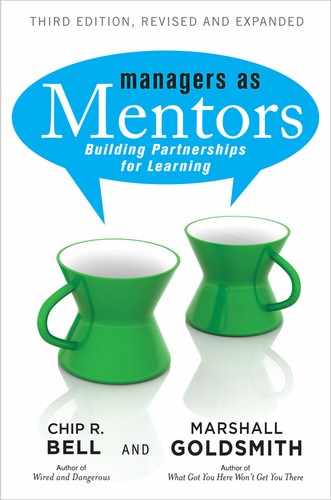Why Mentoring Is Important … Today
Organizations scramble to attract and retain skilled employees. Mentoring can be a powerful weapon useful in winning the war for talent. And both the flattening of organizations and the transformation of the role of boss have left many managers in an identity crisis. Having risen up the hierarchy by virtue of their command and control skills, they enter a world where bossing is now about coaching and partnering. This book offers a new perspective on roles and competencies for bosses as an alternative to what it has meant historically to be in charge.
Organizations have always operated in a competitive arena. Whether vying for a share of an economic market, a share of the customer’s loyalty, or a share of the resources doled out by some governing body, organizations operate in a contest mode. In today’s race, the winners are those that prove themselves more adaptive, more innovative, and more agile. These are the organizations populated by employees who are always learning, led by managers who are always teaching. So at a macro level, this book is about achieving organizational success.
When Managers as Mentors first came out, the concept of the “learning organization” was new and popular. Peter Senge was the new management guru, and his groundbreaking best-seller, The Fifth Discipline, was required reading for all contemporary, forward-thinking executives. We have today moved past the fad stage of a learning organization.1 The landscape of enterprise now is shaped by the dearth of talent, the pace of change, and the transformation of what it means to be in charge—all operating against the backdrop of a challenging economy. This new landscape has put “helping employees grow” at the top of the list of critical success factors for all managers. Consequently, this book is more important today than it was when it first appeared in hardback in the fall of 1996.
As mentoring has grown in importance since then, so have the specifications for mentoring tools. Managers today want proficiency without having to buy into a program. They seek helpful resources and techniques, not hindering rules and policies. Explorations of philosophy and theory might be tolerated after hours, but in the middle of challenge and the heat of contest, managers shun any instruction not immediately transferable to their everyday practice.
